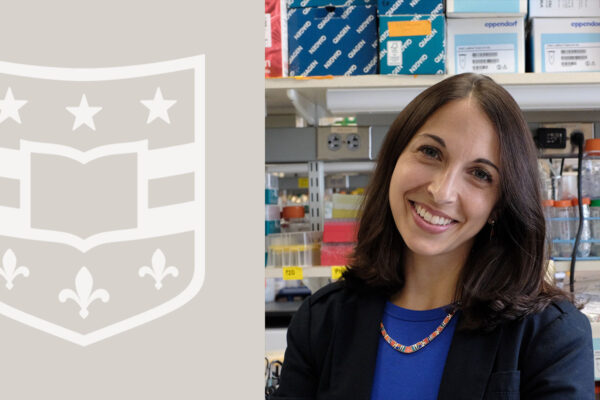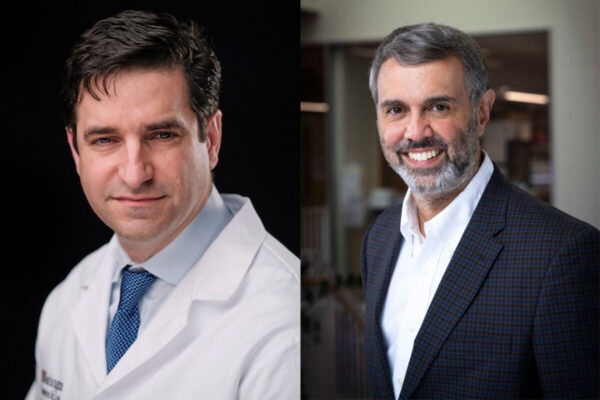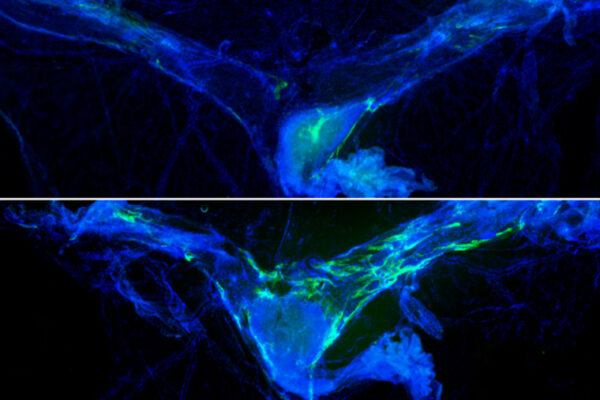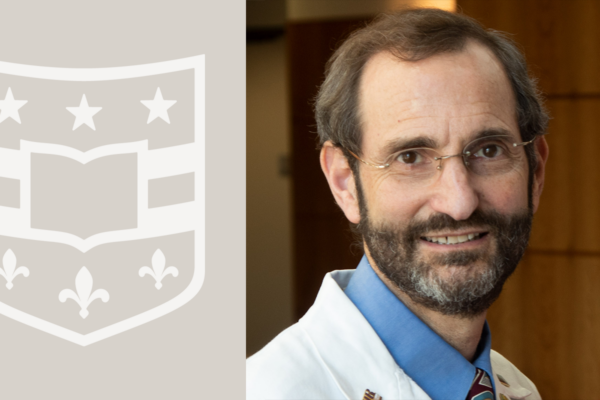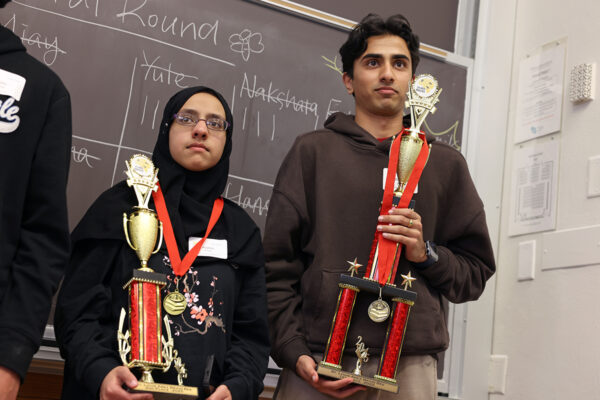A neuro-quantum leap in finding optimal solutions
A computer scientist at Washington University has developed a problem-solving architecture modeled on neurobiology that leverages quantum mechanical behavior to guarantee optimal solutions to complex problems.
Two named to American Academy of Arts & Sciences
Two WashU faculty are among nearly 250 newly elected members of the American Academy of Arts & Sciences, one of the nation’s most prestigious honorary societies. They are physicist Carl Bender, in Arts & Sciences, and immunologist Marco Colonna, at the School of Medicine.
Study examines overlap in causes of cancer, neurodevelopmental disorders
A new analysis, led by WashU Medicine researchers and published in Cell Genomics, examines how certain proteins in human cells are implicated in both cancer and neurodevelopmental disorders, but behave differently, complicating potential interventions.
Pollina honored for innovations in neuroscience
Elizabeth Pollina, an assistant professor of developmental biology at WashU Medicine, has received the 2025 MIND Prize from the Pershing Square Foundation.
Leuthardt, Mitra selected as AIMBE fellows
WashU Medicine’s Eric C. Leuthardt, MD, and Robi Mitra, PhD, have been named fellows of the American Institute for Medical and Biological Engineering.
Grant supports PET scans to track inflammation in Parkinson’s disease
The National Institutes of Health (NIH) is supporting a WashU Medicine effort to track neuroinflammation in the brains of patients with Parkinson’s disease.
Boosting brain’s waste removal system improves memory in old mice
Researchers at WashU Medicine have found a way to target the vessels that drain waste from the brain. Rejuvenating those vessels could open the door to new therapies to prevent cognitive decline.
Jansky/Bander Family Fund supports movement disorders fellowships, brain bank
The Jansky/Bander Family Fund, a generous commitment of $1.1 million over five years, has been established to advance critical initiatives within the Section of Movement Disorders in the Department of Neurology at WashU Medicine.
St. Louis high school students compete, meet experts at WashU Brain Bee
About 55 high school students from the St. Louis region and beyond tested their knowledge of the human brain and learned about neuroscience careers at the 15th annual St. Louis Area Brain Bee March 8 at Washington University in St. Louis.
Good parenting helps, but has limits under major deprivation
Researchers at Washington University find high social disadvantage may limit the benefits of parenting on language and cognition.
Older Stories



